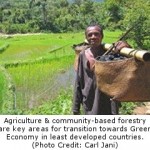 Antananarivo, Madagascar – Over three hundred tortoises have been rescued from poachers and released back into the wild in two separate incidents in Madagascar.
Antananarivo, Madagascar – Over three hundred tortoises have been rescued from poachers and released back into the wild in two separate incidents in Madagascar.
Local police found 271 radiated and one baby spider tortoise on board a bush taxi in Ampanihy, while another 43 tortoises were discovered abandoned on a road further south in Tsihombe. Six people have been arrested in relation to the two incidents.
“WWF applauds the firm clampdown on poachers in the South-western region,” says Tiana Ramahaleo, WWF’s Species Programme Coordinator in Madagascar. “According to what we know, at least 1000 tortoises are removed from the Plateau Mahafaly every week – at least they have been, up to now.”
“The population decline of these flagship species is alarming. In 2001, there was still a population of 12 million; in 2011, we were down to 6.3 million. If we don’t manage to halt tortoise poaching and habitat destruction in the South, we might lose them in the wild in less than twenty years.”
The local court issued an official order allowing WWF to take the tortoises back to the community-managed sacred forest of Ambovo. WWF staff and partners from the Madagascar based Turtle Survival Alliance (TSA) freed all 315 tortoises the next night.
Radiated tortoises are protected, but they are under threat from consumption and the pet trade. Tortoise meat is considered a delicacy among certain tribes in Madagascar with demand strongest before holidays such as Christmas, Easter and Independence Day. Large illegal smoke sites are regularly found during these seasons.
Baby tortoises also leave the country via a handful of international airports to be sold on Asian pet markets with prices ranging from $ 273 in Thailand to $ 4636 in the U.S.
 “WWF established an information network in the South to help the police make sure tortoise trafficking does not go unpunished,” says Ramahaleo. “We welcome the recent decision by the ministry of justice to take a strong stance on tortoise poaching and are very happy that we were able to take these tortoises back to their habitat in a fast and unbureaucratic manner.”
“WWF established an information network in the South to help the police make sure tortoise trafficking does not go unpunished,” says Ramahaleo. “We welcome the recent decision by the ministry of justice to take a strong stance on tortoise poaching and are very happy that we were able to take these tortoises back to their habitat in a fast and unbureaucratic manner.”
“While we are trying to convince people in Madagascar not to eat tortoises any more, we are asking every single person on this planet not to buy endangered Malagasy tortoises as pets. If the demand for endemic tortoises on international markets diminishes, it’ll buy time to save them once and for all.”
WWF Madagascar is involved in numerous projects to save endemic tortoises including habitat conservation, creating new protected areas and working with partners to expand resources for releasing seized tortoises back into safer areas of their natural range.
Source: WWF.












